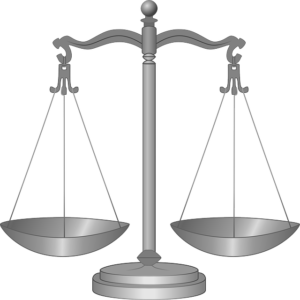 One of the most significant books ever written within the evangelical Christian movement was the short 1947 book by Carl F.H. Henry entitled “The Uneasy Conscience of Modern Fundamentalism.” Many evangelicals are altogether unaware of Henry and his legacy, though (other than perhaps Billy Graham) there has been no one of more lasting significance to the trans-denominational movement that came to be known as evangelicalism. What is so significant about Henry and this book? A little historical context….
One of the most significant books ever written within the evangelical Christian movement was the short 1947 book by Carl F.H. Henry entitled “The Uneasy Conscience of Modern Fundamentalism.” Many evangelicals are altogether unaware of Henry and his legacy, though (other than perhaps Billy Graham) there has been no one of more lasting significance to the trans-denominational movement that came to be known as evangelicalism. What is so significant about Henry and this book? A little historical context….
In the 1920’s and 1930’s, Christianity in America had entered a crisis phase. This played out in a number of contexts, including in the Presbyterian Church here in America, and is best known as the fundamentalist-modernist controversy. It affected nearly every mainstream Christian denomination and still influences events within these churches and in the broader Christian context to this day.
On one side were the modernists. These were theological liberals who blindly embraced all that the most extreme higher critical scholars of the day had to say – the bible is not infallible or inerrant, and it contains historical and scientific errors. Christ didn’t die for your sins in the sense of some sort of substitutionary death (How barbaric! Positively Medieval!), but instead demonstrates the best possible example of what love looks like. He wasn’t bodily raised from the dead, but in some vague sense he’s still with us in spirit. Modernists preached the fatherhood of God and the brotherhood of man. They emphasized the social gospel. True religion became good works – without any of this old fashioned business about sin and hell and atoning sacrifices.
On the other side stood the fundamentalists, known by this name for their conviction that there are certain fundamental truths that must be held in order to be truly Christian. What were these fundamentals? Here are four: The virgin birth of Christ, the bodily resurrection of Jesus Christ from the dead, the reality of miracles just as the bible records them, and the bodily return of Christ on the Last Day. It should be obvious from this list that we are talking about basic, core foundational Christian beliefs. Or fundamental Christian beliefs. If you don’t believe these things, you just aren’t a Christian in any meaningful sense of the word. This is worth pointing out, because the word “fundamentalist” carries an extremely negative connotation in our day – almost synonymous with harsh, rigid, judgmental, narrow-minded, obscurantist faith. This is not the sense that the word had at the time, however.
The fundamentalists were rightly concerned about right doctrine. They were appalled at the modernist rejection of foundational Christian belief and reacted against it. Unfortunately, in their fervent defense of Christian orthodoxy they often became concerned only with right belief. They began to live a version of Christianity that was devoid of real engagement with the brokenness of the world around them. There were no fundamentalist soup kitchens, only modernist ones.
They were like the Ephesian church in book of Revelation: praised for rejecting false teaching, but censured for forgetting their first love. They were like the Christians critiqued in the book of James: having a faith without works, one judged by James to be dead.
It is these fundamentalists resting securely in their dogmatic slumbers that Henry sought to awaken with The Uneasy Conscience of the Modern Fundamentalist. Don’t just believe rightly: engage the hurt, lost, broken people at your doorsteps! Don’t just trust in the righteousness of Christ (though you must do this!): be concerned with advancing the kingdom of righteousness in the world.
This was one of the key moments in the establishment of a vigorous neo-evangelicalism. Many heeded the warning and acted accordingly. Henry’s wake-up call must never be forgotten, however. The church must be ever watchful to preserve sound doctrine, as well as ever vigilant lest it neglect its call to build the kingdom of God through service and action to the broken and hurting all around us. It is an easy (and natural, and sinful) thing for the church to go off the rails to either extreme: dead formalism in the pursuit of doctrinal purity, or theological heresy in pursuit of social relevance. Both are death to the gospel and to the church (and to the world!). Satan wins if we lose this balance.
As Henry reminds us: We must both hold to the faith once for all delivered to the saints and love our neighbors as ourselves. A Christianity that chooses one over the other is not worthy of the name.